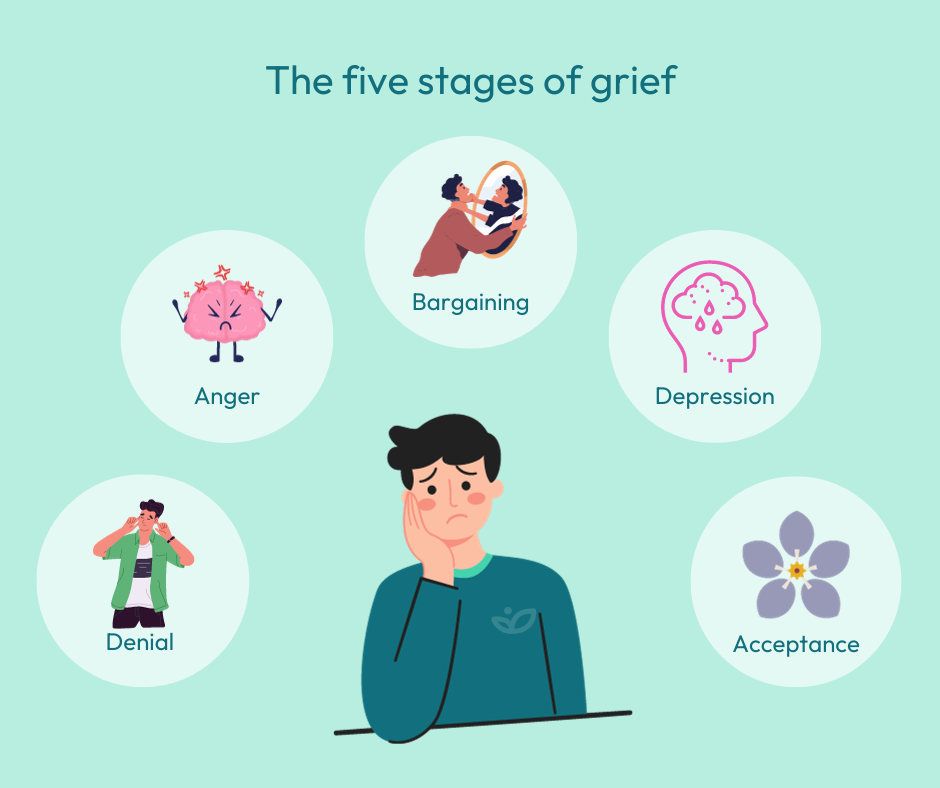“A necessary part of human experience“
Psychologist and author, Dr Julie Smith explains that grief is a normal part of any human experience: “It is a necessary process to go through when we experience the loss of someone or something that we loved, needed, felt connected to and that held meaning in our life.”
When grieving a loved one, you may experience some feelings which don’t make sense or seem confusing to you. And in some cases, we may respond to loss by shutting out our emotions completely and distracting ourselves by keeping ‘busy’. In the long-term, this is not sustainable and can make any restful or alone periods a difficult experience.
Recognising the five stages of grief can help us to practice allowing our feelings without any judgement and each one is key to accepting the loss we are experiencing.
Dr Elizabeth Ross observed the five common stages of grief when interviewing terminally ill patients in the 1960s. At the time, death was not openly discussed, and this model helped dying patients to make choices about their care and help both them and their loved ones to process their grief.
The five stages of grief
It’s important to remember the stages do not follow a particular order and you may revisit each stage more than once.

- Denial “This cannot be happening.”
Losing someone can be overwhelming. To protect ourselves from this upsetting reality, we might deny that this loss has taken place. This can leave us feeling numb.
- Anger “Why is this happening?”
The realisation of what is happening can make us feel anger or frustration. This can be directed at the person we’ve lost, ourselves, others or life in general.
- Bargaining “If only I had…”
Loss can leave us feeling responsible or guilty. We might imagine how we could have done things differently whilst the person was still with us to change the inevitable outcome.
- Depression “What is the point…?”
Intense sadness and longing for the person we’ve lost can prompt us to feel hopelessness and apathy. Sometimes, the depressive symptoms which follow loss can be extreme and affect day-to-day functioning. For example, feeling that life is meaningless or like a part of you has died, intense loneliness or emotional pain. If this is the case, you might be experiencing Prolonged Grief Disorder.
- Acceptance “I can live with this”
At this stage of grief, you accept what has happened and the pain feels less intense. You may even start to look forward to the future optimistically. Tonkin’s model of grief describes this pretty well: the grief does not go away; you simply grow around it, so it doesn’t consume every part of your life.
Need support with grief?
If you are grieving the loss of a loved one, you might consider trying some strategies to help you move through the stages. Take a look at our ‘Pillars of strength’ blog which takes you through eight principles to help you cope with loss.
If you are feeling intense sadness because of grief, you might consider seeking help through your GP. NHS and social care workers in Wales can access help and support through Canopi by referring themselves online.

